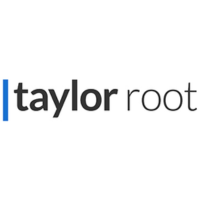

General counsel | JD Sports Fashion Australia




Neil Sher
General counsel | JD Sports Fashion Australia
What has been the number one challenge that has impacted you over the past year?
As our business is expanding rapidly, the number one challenge that impacted us over the past year was the increasing risk of cyberattack. It is commonly said that a cyberattack is not a matter of if, but when. Very recently, our parent company was subject to a cyberattack, which exposed personal information of at least 10 million customers, globally.
I was involved in strategic discussions with the group data protection officer to ensure that we met our data breach notification obligations across Australia and New Zealand. I am now working closely with our CIO to review our global internal IT policy to bolster our cybersecurity protections.
Looking forward, what technological advancements do you feel will impact the role of in-house legal teams in the future the most?
It would be remiss of me not to reference ChatGPT and its impact on the role of in-house legal teams.
ChatGPT will revolutionise how in-house legal teams conduct legal research and document review, with wider AI tools enabling faster information retrieval and decision-making support. While the ‘human element’ will still be required for final legal analysis, this frees up in-house legal teams to provide greater strategic and advisory support. ChatGPT is impressive, but it is not yet capable of delivering nuanced legal advice or negotiating complex contracts. Even with automation and AI tools, the legal product will only be as good as the inputted data. Therefore, in-house legal teams will need to master input and prompt engineering to ensure appropriate information and documents are generated.
ChatGPT quickly distils complex legal issues into easily understood advice for non-lawyers. This will reduce knowledge gaps between legalese and plain writing, thereby increasing non-lawyers’ access to useful advice.
What would you say are the unique qualities required to be successful as an in-house lawyer in your industry?
The first is business acumen, as the core function of an in-house lawyer is to support the company in achieving its goals. For an in-house lawyer to be successful in this aim, they must have a strong understanding of business issues and operations, both general and organisation-specific, to be able to provide legal advice that uniquely aligns with the company’s strategy.
The second is strategic thinking capabilities. Perhaps the cornerstone of an in-house lawyer’s value is their ability to think strategically and anticipate legal issues. A successful in-house lawyer will be able to develop proactive legal strategies to help the company avoid legal risks while achieving its objectives.
The third is adaptability, as the one constant element of business is change. A successful in-house lawyer will maintain their relevance and value to a company by adapting to changing circumstances and showcasing their resourcefulness under pressure.
General Counsel | JD Sports Australia